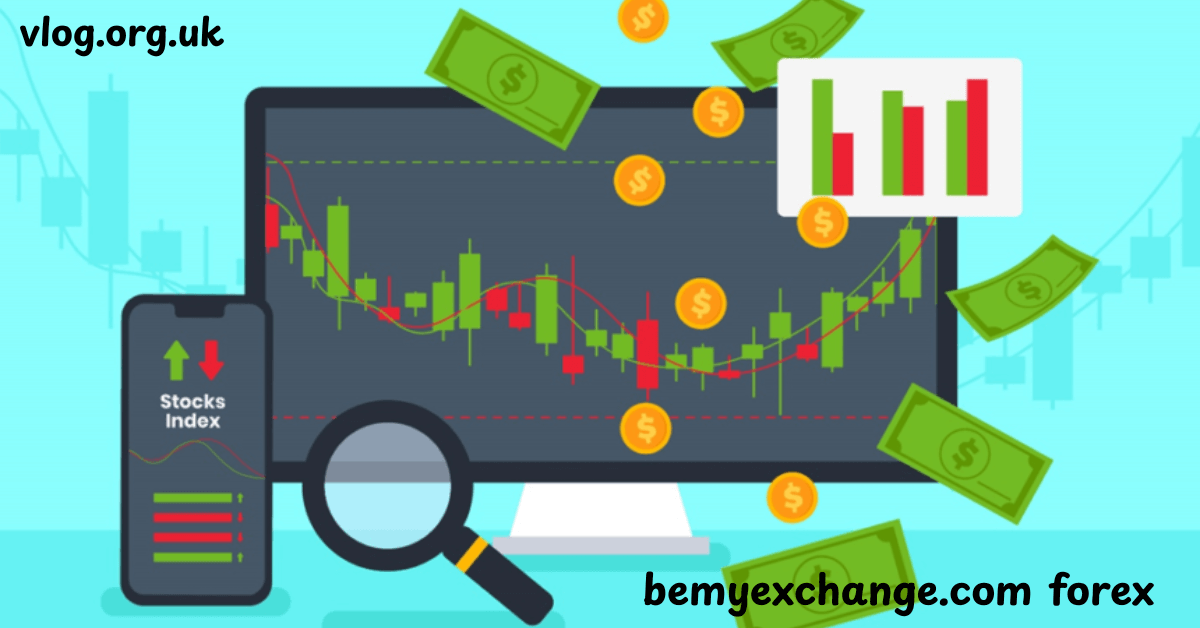
The Russell 2000 Index stands as a beacon for investors eyeing the thrilling world of small-cap stocks. Representing the smallest 2,000 companies in the Russell 3000 Index, this small-cap benchmark offers an exciting lens into emerging companies poised for growth. As the market fluctuates with economic indicators, investors turn to trusted platforms like Fintechzoom for real-time analysis, actionable insights, and expert investment guidance.
What is the Russell 2000?
The Russell 2000 is a premier small-cap index created in 1984 by the Frank Russell Company and is currently maintained by FTSE Russell, a subsidiary of the London Stock Exchange Group (LSEG). This index offers an invaluable snapshot of the U.S. economy by capturing the performance of smaller public companies.
Unlike the S&P 500, which tracks large-cap stocks, the Russell 2000 Index represents about 7% of the total market capitalization of the Russell 3000 Index, showcasing smaller, agile companies with higher growth potential but greater volatility.
Why Small-Cap Stocks Matter
Small-cap investing plays a vital role in portfolio growth and diversification. Companies in the Russell 2000 often operate in niche markets, offering unique opportunities not typically available in large-cap spaces.
These smaller firms can react quickly to market trends, innovate rapidly, and adapt to changing economic environments. With fewer institutional investors, market inefficiencies abound, creating fertile ground for alpha generation.
Understanding the Performance of the Russell 2000
The stock performance of the Russell 2000 is a trusted market indicator of the broader economy, particularly during periods of economic recovery or bull markets. It often outperforms large-cap indices when consumer spending is strong.
Tracking price return, total return, and volatility metrics helps investors assess how this small-cap benchmark reacts to external pressures. Its strong historical performance in periods of economic optimism makes it a go-to for growth-minded investors.
Composition of the Index
The Russell 2000 Index includes 2,000 of the smallest publicly traded U.S. companies, spanning multiple sectors like technology, healthcare, consumer discretionary, and the financial services sector. This sectoral spread supports portfolio diversification and limits overexposure to any one area.
From startups to established mid-caps, the Russell 2000’s diverse index composition helps investors gain broad exposure to the small-cap universe, often capturing early-stage industry leaders.
Performance Metrics
Performance is measured using key indicators such as annual returns, intraday trading highs, and total return over time. For instance, its all-time intraday high was 2,466.49 on November 25, 2024, while its closing high reached 2,442.74 in 2021.
The Russell 2000 also reflects economic cycles—rebounding strongly in boom years like 2003 (+47.25%) and 2013 (+38.82%) while showing weakness during downturns like 2008 (–33.79%).
Key Factors Influencing the Russell 2000
Factors such as market sentiment, interest rates, and labor market conditions heavily influence Russell 2000 performance. The index is highly sensitive to domestic economic changes due to its U.S.-centric companies.
Additionally, consumer confidence and federal monetary policy directly impact these smaller firms, making the index a key proxy for economic resilience and investor optimism.
Economic Indicators
Crucial economic indicators such as GDP growth, inflation, and the Federal Reserve’s interest rate decisions significantly affect the Russell 2000’s movements. Lower interest rates often translate into better borrowing conditions, spurring growth.
Likewise, strong employment data and wage growth support consumer spending, positively impacting companies within this small-cap benchmark.
Market Sentiment and Trends
The Russell 2000 thrives in periods of bullish market sentiment. In optimistic climates, investors often favor higher-risk, higher-reward equities—making small-cap indices like the Russell 2000 highly attractive.
In contrast, during recessions or geopolitical uncertainty, the index may underperform as investors seek the perceived safety of large-cap or dividend-yielding investments. Observing stock market trends in tandem with sentiment is crucial.
Fintechzoom.com: A Resource for Investors
As navigating the Russell 2000’s intricate landscape can be daunting, Fintechzoom.com emerges as a vital partner. It’s a trusted financial news platform offering expert analysis, real-time updates, and practical guidance for navigating small-cap investments.
The platform bridges data with decision-making, empowering investors with knowledge across sectors, indices, and investment strategies—from ETFs tracking Russell 2000 to mutual fund benchmarks.
What is Fintechzoom.com?
Fintechzoom is a robust, information-rich site that delivers up-to-the-minute financial news, market data, and insights. Known for its deep dives into Russell Indexes, stock analysis, and economic updates, it is a go-to for professionals and casual investors alike.
The platform combines financial journalism with expert analysis to create trustworthy content that meets the standards of E-A-T—Expertise, Authoritativeness, and Trustworthiness.
How Fintechzoom.com Covers the Russell 2000
From daily performance reviews to long-term investment analysis, Fintechzoom’s Russell 2000 coverage is unparalleled. Articles feature updates on index highs, expert forecasts, and the latest moves by index constituents.
Fintechzoom also offers custom tools and newsletters that track intraday trading activity, economic reports, and market shifts—tailored for investors targeting the small-cap segment.
Importance of Staying Updated
Staying current with real-time data is critical for effective small-cap investing. Fintechzoom’s alerts on market sentiment, interest rate changes, and policy shifts ensure you’re never in the dark.
Its coverage can help investors pivot their investment strategies promptly, minimizing risks and capitalizing on momentum in the Russell 2000 Index.
Example Members of Russell 2000
Some notable members of the Russell 2000 include:
- ADTRAN Holdings, Inc. (ADTN)
- Alight, Inc. (ALIT)
- ChampionX Corporation (CHX)
- Chart Industries Inc. (GTLS)
- Denali Therapeutics, Inc. (DNLI)
- Dorman Products, Inc. (DORM)
- EverQuote, Inc. (EVER)
- Fulton Financial Corp. (FULT)
- Spok, Inc. (SPOK)
- Tilly’s, Inc. (TLYS)
- Workiva (WK)
These companies span diverse sectors and exemplify the innovation and growth potential found within the Russell 2000.
Record Values
The Russell 2000 has set several notable records, illustrating its long-term growth potential. It first surpassed the 1,000 mark in May 2013 and exceeded 2,000 by December 2020.
Its all-time intraday high stands at 2,466.49 (Nov 25, 2024), with a closing high of 2,442.74 (Nov 8, 2021)—both symbols of investor confidence in U.S. small-cap equities.
Annual Returns
The Russell 2000’s annual returns paint a vivid picture of market evolution. Noteworthy years include:
- 2003: +47.25%
- 2013: +38.82%
- 2023: +16.93%
Despite setbacks in 2008 and 2022, the index has delivered substantial long-term gains, cementing its status as a potent small-cap growth engine.
Investing
Investors can gain exposure to the Russell 2000 via ETFs (like IWM) and mutual funds that mirror the index. These vehicles provide ease of access, although actual performance may vary due to trading expenses and fund-specific strategies.
Though you can’t invest directly in the index, these options offer diversified exposure to its constituents—ideal for those seeking long-term capital appreciation.
See Also
- Russell 3000 Index
- Russell 1000 Index
- S&P 600
- Russell Investments
These related indices offer alternate lenses into different market capitalizations and strategies.
Conclusion
The Russell 2000 Index, with its dynamic mix of small-cap stocks, offers powerful growth opportunities for savvy investors. Tracking economic indicators, market behavior, and index composition helps demystify this volatile yet rewarding asset class.Platforms like Fintechzoom.com enable confident investing with real-time data, expert advice, and up-to-date news. By integrating Russell 2000 insights into your strategy and leveraging tools like ETFs, you position yourself for smarter, faster, and more profitable decision-making.
Frequently Asked Questions
Q1: Why is the Russell 2000 important to investors?
A: It reflects the health of small-cap companies and the broader U.S. economy, often leading in early-stage bull markets.
Q2: Can I invest directly in the Russell 2000?
A: No, but you can invest in ETFs and mutual funds that track its performance.
Q3: How does Fintechzoom help with Russell 2000 investing?
A: Fintechzoom provides real-time news, expert analysis, and actionable insights tailored for Russell 2000 investors.
Q4: What are some risks of investing in the Russell 2000?
A: Higher volatility, lower liquidity, and sensitivity to domestic economic factors.
Q5: Which sectors dominate the Russell 2000?
A: Technology, healthcare, financial services, and consumer discretionary.
Also Read:- Katz Martian





